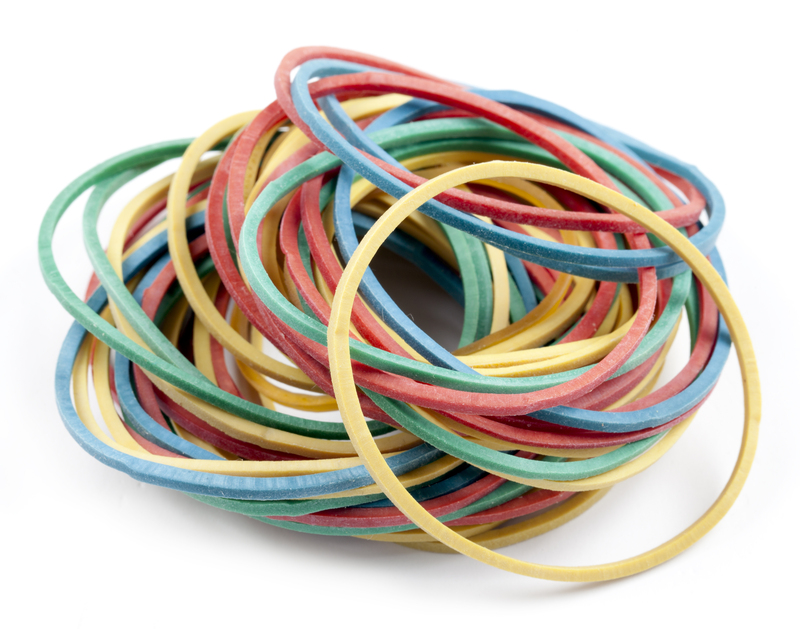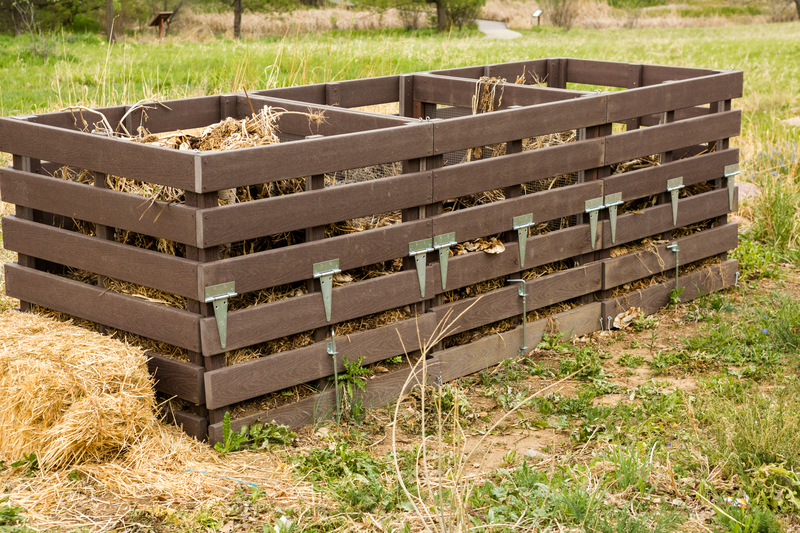Creative Ways Schools Can Implement Recycling
Recycling is no longer a passing trend--it's a vital habit for ensuring a sustainable future. Schools, as centers of learning and innovation, have a golden opportunity to shape responsible recycling habits among students, staff, and their communities. Implementing robust, innovative recycling practices in schools helps protect the environment and creates environmentally conscious citizens. In this comprehensive guide, discover creative ways schools can implement recycling effectively and become green role models in their communities.
Why Recycling in Schools Matters
Educational institutions generate significant amounts of waste, from paper and plastic to electronics and food scraps. Schools are also trusted to educate future generations. By embedding unique recycling initiatives in the school curriculum and culture, schools can teach responsibility, resource stewardship, and environmental ethics.
- Reduce waste: Proper recycling minimizes landfill use and conserves resources.
- Teach life skills: Students learn about sustainability and environmental stewardship.
- Community impact: Schools set examples and can ignite wider community change.

Creative and Effective Recycling Ideas for Schools
*Below you'll find a wealth of inventive, actionable, and school-friendly recycling ideas to jumpstart lasting change.*
Themed Recycling Stations
Make recycling fun and educational by crafting themed recycling bins tailored to your school's culture and age group. For example:
- Sports Fanatics: Use old basketball hoops as paper recycling bins.
- Young Explorers: Decorate bins like robots, animals, or cartoon characters.
- Artists: Invite the art club to paint or decorate bins with environmental messages.
Such interactive bins boost engagement and encourage correct waste disposal.
Classroom "Recycling Champions" Programs
Create teams of student recycling leaders in each class or grade. Assign them tasks like monitoring recycling stations, educating peers, and organizing creative recycling events.
- Give "champions" badges or certificates for their contributions.
- Rotate responsibilities so all students participate throughout the year.
*Empowering students increases accountability and responsibility for a greener campus.*
Interactive Recycling Contests and Challenges
Nothing sparks enthusiasm like a friendly contest! Organize school-wide recycling competitions such as:
- Which class recycles the most paper/plastic/cans during a month?
- Creativity contests for artwork or sculptures made from recycled materials.
- Trivia games or scavenger hunts about recycling facts and best practices.
Offer prizes or a class party as incentives. This creative recycling strategy for schools channels competition into sustainable action.
Recycling Education Across Subjects
Integrate recycling and sustainability topics into lesson plans across all subjects--not just science. Ideas include:
- Math: Calculate waste reduction or energy saved from recycling.
- English: Write persuasive essays or create posters on recycling.
- History: Study famous environmental movements or policies.
- Art: Use only recycled materials for class projects.
Such cross-curricular connections make recycling a living, breathing concept--not just a rule.
Upcycling Projects and Eco-Art
Teach the value of reusing before recycling by promoting upcycling. Organize:
- Craft workshops turning bottles, boxes, and clothes into new usable items.
- Eco-art clubs where students create decorations from discarded materials.
- School garden planters made from old buckets, tires, or containers.
Encourage students to display their creations throughout campus, celebrating resourcefulness.
Composting Cafeteria and Classroom Waste
Food waste is a major concern. Launch a school composting program by:
- Setting up labeled compost bins in cafeterias and classrooms.
- Teaching students what foods can and can't be composted.
- Using resulting compost in the school garden or donating to local parks.
This is an excellent hands-on science lesson and significantly reduces organic waste.
Digital Recycling for the Information Age
Modern schools generate digital waste: outdated electronics, obsolete disks, and tangled cords. Try these innovative tech recycling solutions for schools:
- Host "e-waste drive" days, partnering with local e-recycling centers.
- Teach safe device disposal and data wiping as part of computer classes.
- Encourage device upgrades or donations instead of discarding old but functional gadgets.
Responsible e-waste management is critical as technology's classroom role expands.
Partnering with Local Businesses and Recycling Facilities
Forge connections with local recycling centers and eco-friendly companies for:
- Regular, efficient collection of school recyclables.
- Guest talks or field trips about recycling processes.
- Sponsorship for bins, signage, or eco-events.
*Such partnerships widen school impact and introduce students to real-world green careers.*
Zero-Waste Events and Green Fundraisers
Apply creative recycling ideas for schools when planning events:
- Zero-waste policy: Use reusable plates and water bottles for fairs and sports meets.
- Host "swap meets" where students trade books, uniforms, or school supplies instead of buying new ones.
- Sell upcycled crafts or recycled-material products at school markets to raise funds for green projects.
*Showcasing sustainability during high-visibility events inspires students and their families to adopt similar habits at home.*
Student-Led Recycling Audits and Surveys
Empower students to lead regular waste audits and recycling surveys. Have them:
- Identify what is most and least recycled.
- Pinpoint contamination issues (like non-recyclables in blue bins).
- Survey peers and staff on recycling knowledge and suggestions.
Transform audit findings into actionable steps, such as re-labeling, adding bins, or hosting re-education sessions.
Incorporate Technology and Recycling Apps
Embrace modern technology to teach and track recycling progress. Schools can:
- Adopt recycling tracking apps showing school-wide stats in real time.
- Use QR codes on bins for on-the-spot educational content.
- Organize digital leaderboards for inter-class recycling efforts.
*Data-driven encouragement motivates continued improvement and friendly competition.*
Best Practices to Sustain Creative School Recycling Programs
A successful recycling initiative requires more than just "one-off" events. Consider these key practices to ensure your school's recycling program is long-lasting and effective:
- Administrative support: Ensure commitment from school leadership for resources and visibility.
- Clear, consistent signage: All bins should have easy-to-understand labels and instructions, possibly with pictures for younger kids.
- Ongoing education: Refresh knowledge with short assemblies or morning announcements.
- Community inclusion: Involve parents, staff, and local groups to broaden impact.
- Monitor, review, and improve: Regularly assess what's working, then adapt your approach.
*It's vital to celebrate successes, however small, and learn from missteps together!*
Overcoming Common Obstacles
Even the most creative recycling ideas for schools can face challenges, such as:
- Lack of student interest or buy-in.
- Contamination of recyclable materials.
- Limited resources or logistical hurdles.
How can schools address these?
- Make recycling visible and rewarding--recognize active participants.
- Simplify recycling instructions with engaging visuals.
- Secure grants or community sponsorship for bins, signage, or educational materials.
Partnering with local municipalities for support and connecting recycling practices to real-world problems (like plastic in oceans) also boost engagement and relevance.

The Ripple Effects of School Recycling Initiatives
Successful school recycling programs generate ripples far beyond the campus gates. Students bring habits home, influencing their parents, siblings, and neighborhoods. Parents often learn from their children about the importance of sorting recyclables, cutting down on single-use plastics, or composting food waste. Through annual eco-events or competitions, schools can educate and inspire the wider community.
Over time, today's students become tomorrow's eco-conscious citizens, ready to tackle environmental challenges with real-world experience gained in the classroom. The benefits of creative recycling initiatives in education extend for decades.
Conclusion: Unleash Your School's Recycling Creativity
Whether your school is just starting its green journey or looking to level up, the strategies shared here can redefine your school's role in protecting the environment. Innovative recycling in schools is not just about separating plastics and paper--it's about unleashing creativity, building a culture of stewardship, and igniting a movement that spreads from classroom to community.
By engaging students with themed bins, competitions, curriculum ties, and art projects, recycling becomes a fun and integral part of daily life. Inspire your teachers, parents, and local businesses to join in. Together, we can turn every school into a brilliant model of eco-friendly, sustainable learning.
Let your school's recycling story be the one that sparks change for generations to come.
- Start small--but start today.
- Encourage student leadership and innovation.
- Make every recycled item count!
More Resources for School Recycling Programs
- EPA: Reducing Waste - What You Can Do
- TerraCycle: Specialized Recycling Programs
- Green Schools Alliance
For more creative recycling inspiration for schools, consult local government environmental agencies or green education nonprofits in your region.